Seen in September & October

Fritz Lang's Woman in the Moon, aka Frau im Mond. Image via the New York Times
Netflixation: the feeling of slight elation or the smallest tingling of satisfaction of having actually selected something to watch. My phone tells me my “screen time” was up 40% last week, but that of course, was the time my phone was active. I attribute that simply to being out and about more recently and needing my phone for all things. Also I’m really really trying to figure out Instagram “Stories” which is an entire mystery to me (I’m particularly angered about this as the lead designer of the app is featured in this season’s series of designer profiles, Abstract). App anxiety aside this is what I gave time to in September and October.
Derry Girls S02
This series that is sort of a coming of age story of a group of teenage girls (and one lad) all set in Londonderry, Northern Ireland at the time of “The Troubles” will make you believe ordinary life stories can be funny, endearing, heartbreaking and meaningful and important especially during the most tumultuous of troubling times.Listen Up Philip
Listen up, this flailing attempt of a kind of American version of a Francois Truffaut style French New Wave cinema is a complete failure. It's the story of a promising young novelist’s romantic entanglements and his friendship with an older “literary lion” mentor. The dialogue all sounds stiffly like portentously pseudo-intellectual ramblings of a first year student in a creative writing workshop. At one point I felt bad that Jason Schwartzman’s efforts were completely undermined by some questionable editing and amateurish directing. Jonathon Pryce also gives his best effort only to be cut off at the knees by bad writing, terrible editing and an almost grotesque use of handheld camera work. Elizabeth Moss is also wasted in the role of frustrated girlfriend.*PS. Please note, my tone of critique of this movie is almost as stupid and insipid as the dialogue and dumb voice-over used throughout.
Woman in the Moon
A little known 1929 Fritz Lang sci-fi epic about an expedition to the moon. It would be the last silent film Lang would direct. The reason this film is so little known is probably because it is long and can’t decide if it's a thriller, a romance or a science fiction film. There’s a love triangle, a heist (of plans to go to the moon) and the trip to the moon which has more in common with Tintin’s Explorers of the Moon from 1954 than the 1902 Georges Méliès film A Trip to the Moon. The basic plot here is that a group of investors want to go to the moon to explore and exploit possible mineral riches. They essentially hijack an adventurer’s plans to do so because he’s much further ahead in building a rocket (imagine if a group of Chinese investors forced a takeover of Elon Musk’s Space-X program and company). The movie is an odd mix of what it gets right and what it gets wrong that makes it a little like the 2001: a Space Odyssey of its day. It is sort of stunning how little we knew of the moon by the late 1920s. The sequence of firing the rocket to the moon and landing there are surprisingly like Apollo 11, but when they land on the dark side of the moon because that location is most likely to have a breathable atmosphere, we’re back to 19th century conjecture. Another surprising aspect of a film that seems to care about scientific accuracy is that the melodramatic acting is still in full swing as if we hadn’t been making movies for over a decade before that. I guess it wasn’t until the regular use of sound when that sort of acting must have seemed as crazy as a trip to the moon.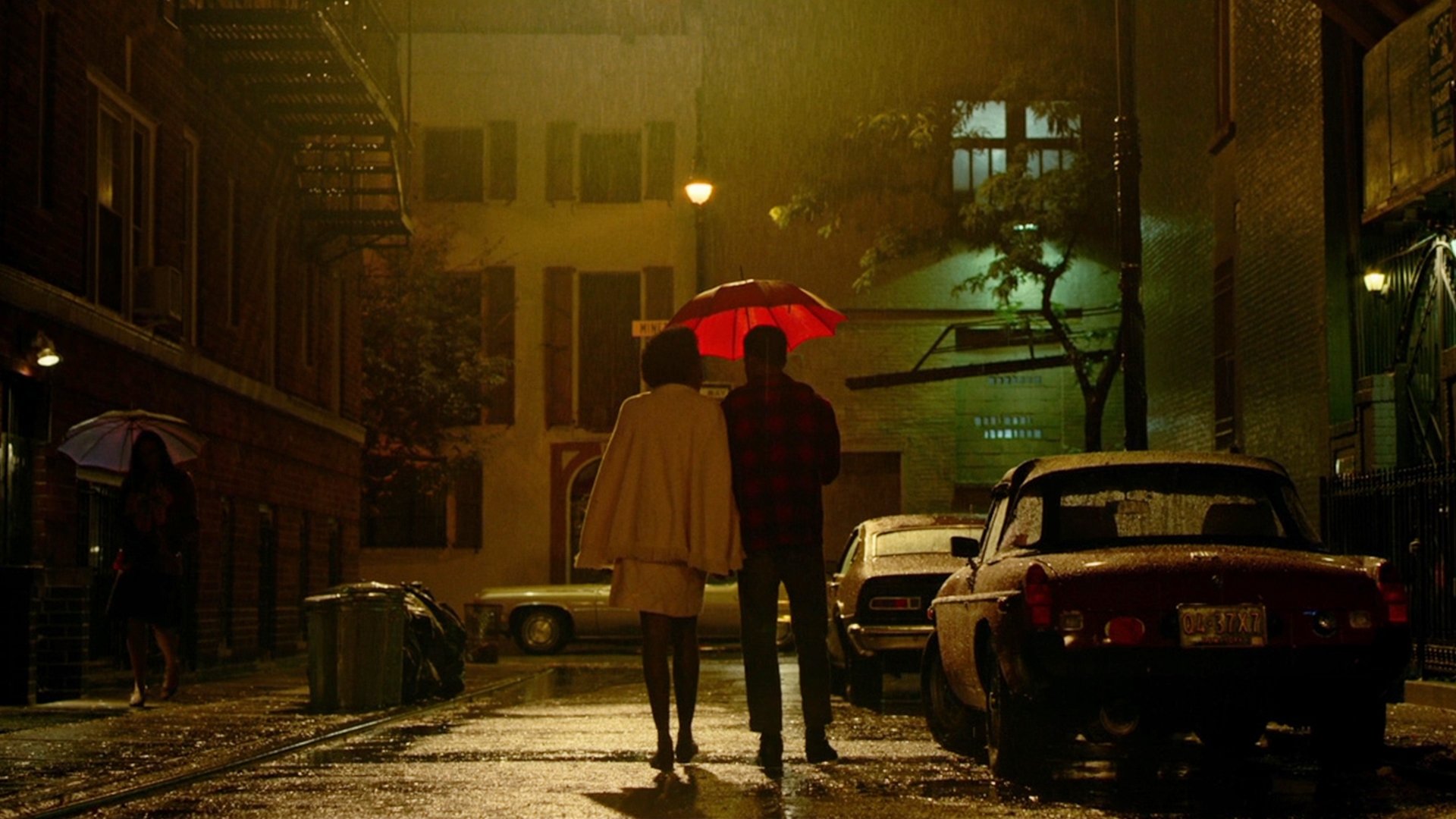
If Beale Street Could Talk. Image via the Movie Db
If Beale Street Could Talk
If you were a black man in the 1905s accused of raping a white woman no matter how unlikely it was or even if you had two witnesses as alibis, it’s likely you were going to go to jail. Is the situation any different 60 years later? Tish and Fonny (played by Canadian Stephan James) are sweethearts who have grown up together but just as they are planning on getting married and finding a place of their own in New York City, Fonny is accused of a crime he never committed. That’s the menace of being black in 1950s America. Your freedom is imperilled nearly everyday by a system of justice that wants only to keep its boot on your throat. The film is illuminating and luminous, beautiful but heartbreaking, joyful and sad. It is also very slow. Maybe even too slow. There are several scenes when director Barry Jenkins (Moonlight) allows his actors so much time and space you may be compelled to get up and get a snack from the kitchen.Wallace and Gromit: A Matter of Loaf or Death
Another endearing and funny Wallace and Gromit short about a loveable bungling British chap and his loyal and ingenious pet dog/closest friend. Yet, this film is so similar to the previous shorts you might easily confuse it with previous films. Can’t Wallace ever find love and Gromit get the credit he deserves?Dave Chapelle: Sticks and Stones
Dave Chapelle has never stopped touring and performing as one of America’s top comedians, but he hasn’t done as much television or stand-up specials that his fans have wanted. In this special, approaches some very touchy topics with undeniably questionable opinions. Such as not believing Michael Jackson’s accusers or forgiving Louis CK or making light of the prospective of a transgendered person’s point of view. I would say he “tackles” these issues as much as he sidles up to them, then puts the audience on the back foot to tee them up for a punchline. It’s as though Chapelle sets up his premise, then walks through a series of absurd logical steps to hit his point. Almost every time he said something controversial I thought, “Oh no.” but would wind up laughing anyway.
Mindhorn. Image via the Movie Db
Mindhorn
A has-been actor whose greatest role was 30 years ago, set on the Isle of Man, as a detective with a bionic truth-seeing eye (Isle of Man’s greatest detective) has burned his last bridge. Cue phone call. The Isle of Man has seen a violent episode and the only suspect has called the local police force demanding the fictional character, Mindhorn, be his contact. The police dispatch for Mindhorn who almost still fits in his original outfits, including the toupee. If you’re up for some British silliness and 80s nostalgia then this is your ticket to the Isle of Man. Before I wanted to go for the natural beauty but now I want to go to see where Mindhorn was filmed.October

Kumiko, of the title. Image via the Movie Db
Kumiko Treasure Hunter
I’ve wanted to see this film for a long time. It's about a quiet woman’s fantasy that the lost treasure, buried on the roadside of a Minnesota highway in the Cohen Brothers film Fargo is still somehow retrievable. She leaves her job as a… I have no idea what office ladies do in Japanese offices, but she leaves her job without telling anyone other than her pet rabbit that she sets free on a subway train after it fails to run away in a park. With a stolen corporate credit card as her only means, she flies from Japan to the U.S. and seeks help in her broken English to find Fargo, North Dakota. Despite many kindly Americans telling her Fargo is too far and too cold for sightseeing she persists eventually leading her to a barren snow covered forest. At one point Kumiko thinks she has recovered the missing briefcase of money (the fictional one from the fictional film) only to realize it’s just a log. It’s as this point when maybe, just maybe, her delusion may dissolve into reality but it does not. The film’s finale is a bit of magic realism that only reinforces the theme that you can run from the humdrum of everyday banality into a fantasy of your own making and it may in fact pay off, but it may also be your demise if you let it. My demise was following this dreary film for its entirety with very little treasure at the end.Honeyland
This documentary is a little hard to describe. Filmed in rural Macedonia, Hatidze is one of the only, if not the only, female bee hunter in Europe. This means she keeps bees in a very traditional ways and gathers honey from wild bees to sell for her incredibly meagre income to take care of herself and her aging mother. At some point, a family of migrant workers, only slightly less poor than Hatidze, move in to manage a local cattle herd and set up their own apiary. At first Hatidze is happy to educate the father of this weirdly dysfunctional clan on the ways of keeping bees. She befriends the children and clearly enjoys their company. In fact, one of the sons takes to her and tries to intervene in his father’s fumbling attempts at beekeeping. Yet, it is not to be. The hardscrabble family of husband and wife and their uncountable hoard of kids soon mismanage the cattle herd they are keeping for the owner of the land resulting in most of the animals dying from illness and their bees, both underproduce and destroy Hatidze’s hives. Then, on near-sighted honey expedition the boss of the bungling dad, seek out, plunder and destroy a wild hive Hatidze has been carefully cultivating. The family, like a living analogy of our insanely industrialized society move on after having left a cattle herd decimated and destroying a poor woman’s only source of income. Worse yet, Hatidze’s aging mother, who is blind, nearly deaf and suffering from what can only be described as the most gruesome abscess in the history of cinema dies. This is what the modern world does. It consumes, destroys and moves on. Watching history repeat itself in the most personal of ways is a little bit soul-crushing and it makes you wonder how in the hell did the filmmakers capture any of it like an unseen audience.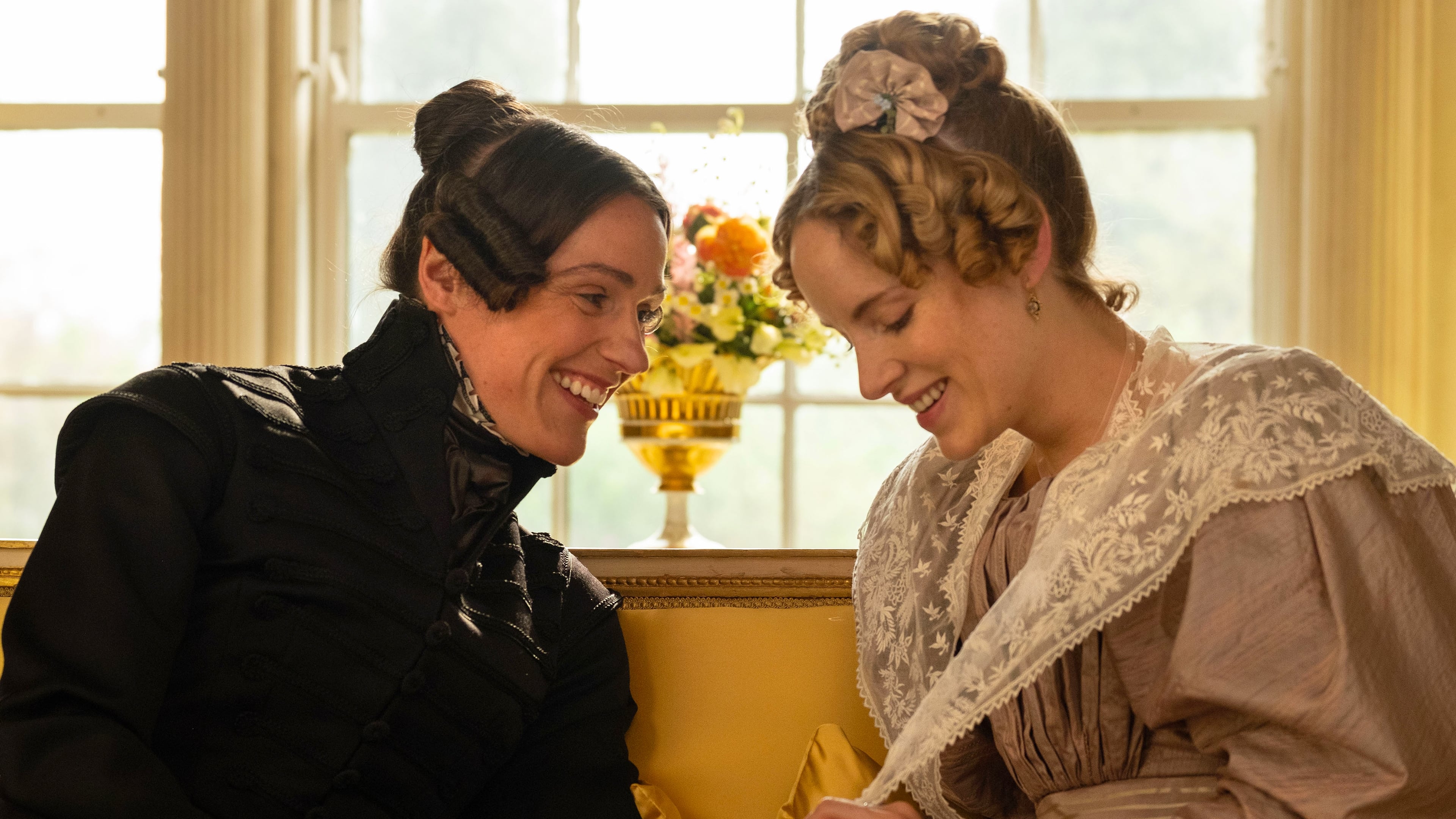
Ann Lister wooing her lady, Hey-ho! Image via the Movie Db
Gentleman Jack
This HBO series is based on the incredible diaries of the incredible Ann Lister. It was rare in the 1830s that a woman would be heir to her family’s property but Ann Lister was uniquely educated, travelled, clever and driven. Oh and she was a lesbian at a time when being discovered as homosexual might get you hanged (such laws existed for gay men but not for women). Ann Lister is not a woman who suffers fools and sees no problem with having the same rights as any fool man. Part of that is that she will not abide having coal stolen from her land, nor put up with unworthy tenants on her farmland. Also, she would like to find a wife to settle with. The role of Lister is played with aplomb by Suranne Jones whether she is tromping throughout Halifax in Yorkshire or the Swedish court. Her charism is palpable.Professor Marston and the Wonder Women
If you’re interested in unusual marital relations look no further than William Marston, his wife Elizabeth and their shared lover Olive Byrne. The Marston’s psychological work resulted in the invention of the lie detector but Marston is probably better known for putting his psychological theories at work in the creation of his comic creation Wonder Woman which was in its early days rife with bondage, implied S&M eroticism and overt feminism. All of those themes were as uncommon in the 1940s as was his unusual living arrangement with his wife and former teaching assistant Byrne. The arrangement went beyond the bedroom and included the extended family that resulted from their relationship. After William Marston’s death, his widow and her lover continued to live together for decades after. Unfortunately, like many bio-pics that span decades, there is too much effort to hang every point of interest in their lives to consistent themes that are probably needed to make a movie interesting. If you can’t make a movie interesting about a couple living with their shared lover as they explore their interest in bondage then maybe you shouldn’t have tried.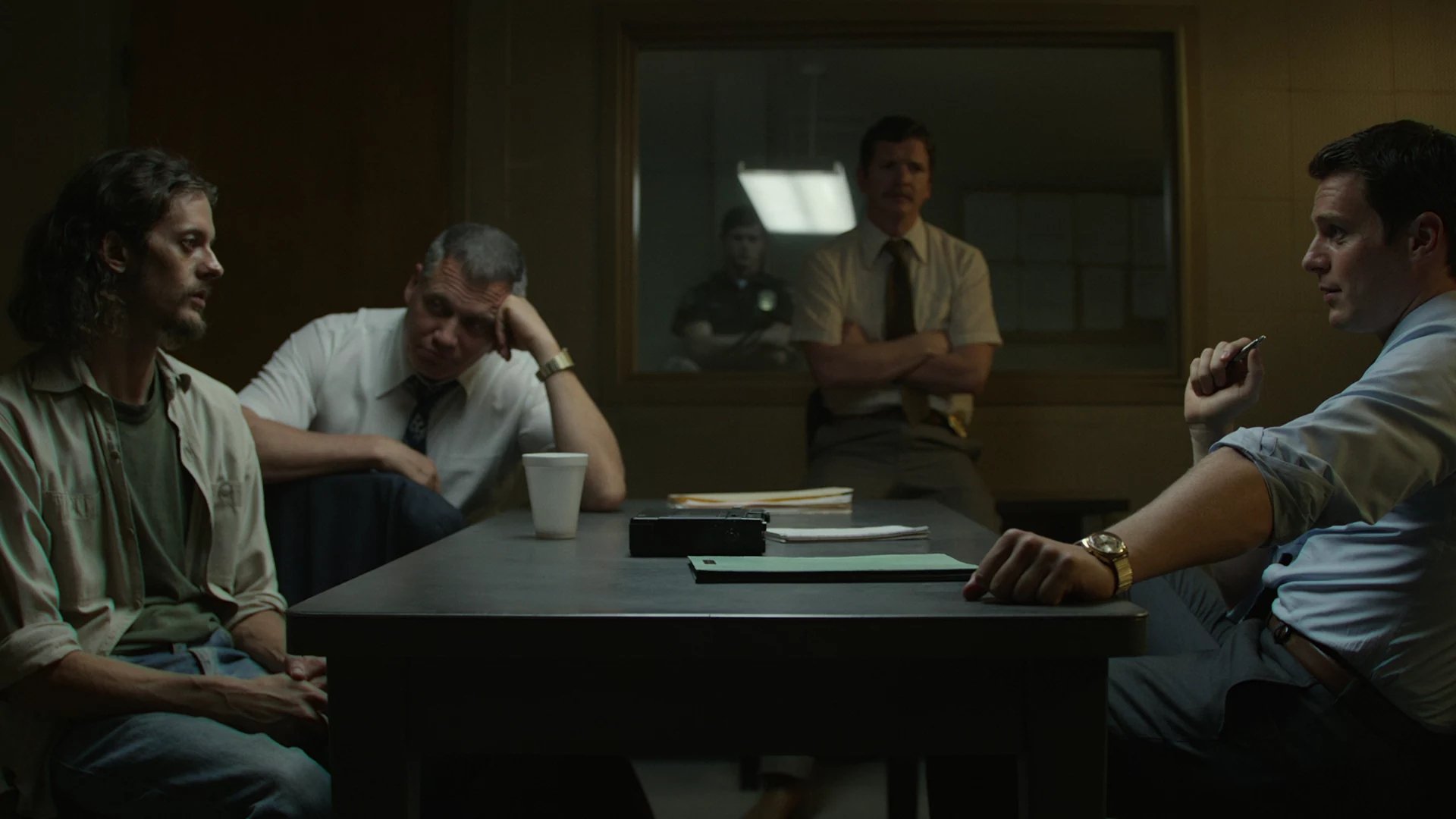
Mindhunters gonna hunt. Image via the Movie Db
Mindhunter S01-02
Hey - this will cheer you up. Actually no. It won’t. This series on Netflix is absolutely riveting as the slightly fictionalized story of how the FBI’s Behaviour Analysis Unit created the profession of “profiler" in their attempts to better understand the minds of murderers who are compelled to repeat their crimes. What appears at first to be a pointless endeavour trying to describe the psychosis of what drives men (almost entirely white men) to kill again and again becomes an important and compelling tale of using patterns of behaviour to not only track but find and arrest killers. Part of me worries about my own psychological profile of enjoying these kind of stories but that would essentially be exactly what the protagonists of the series find themselves thinking. From the ambitious young Holden Ford, to the FBI veteran Bill Tench to the academic Dr. Wendy Carr, we see the sacrifice these people make in their personal relationships, families and professional lives in pursuing this methodology. Through interviewing some of America’s worst killers they come to define the patterns and categories that make up what we now call serial killers, the term this FBI unit derived to name what they were studying. It is undeniably like a car crash that you want to avoid but can’t take your eyes off of.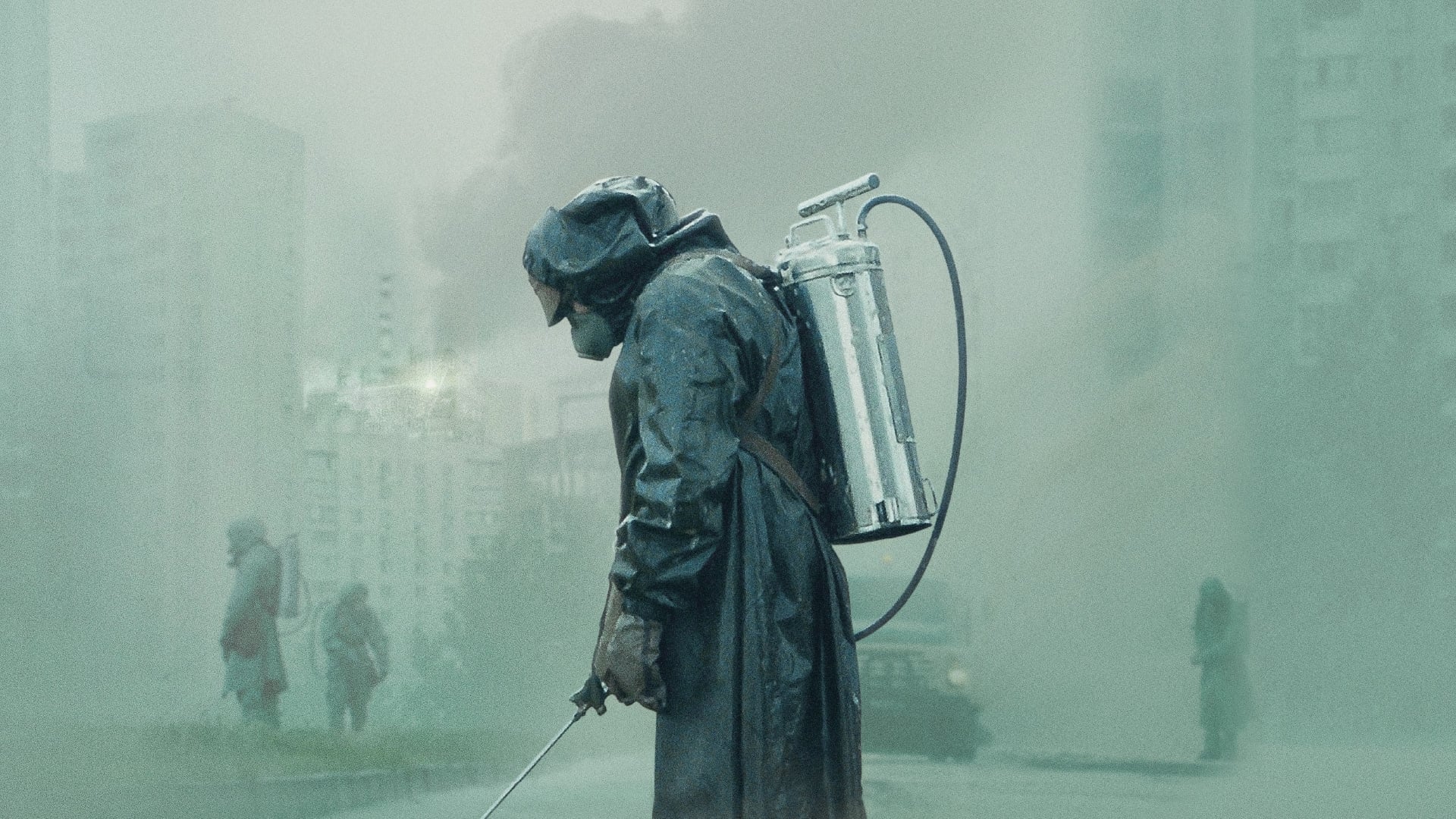
Chernobyl. Image via the Movie Db
Chernobyl
This HBO mini-series (a rare thing in this era of “Peak TV”) captures the events around and subsequent investigations into the Chernobyl Nuclear Disaster. The really shocking thing is that the corrupt secrecy of the Soviet Era was one of the primary reasons this disaster happened in the first place and it made it almost as difficult in dealing with the fallout (pun intended). On the night of the disaster, the crew running the power plant did almost everything wrong but the failsafe that should have saved them couldn’t because cost savings in the design of the plant and the fact the flaw in the design was hidden as a state secret led to the worst nuclear disaster in history. Through the attempts at cleanup and the scientists uncovering the fatal flaw we see the incredible risks of our harnessing of nuclear energy and how the simplest of mistakes could unleash a power we only barely understand. Jared Harris is excellent as the beleaguered nuclear scientist as is Stellan Skarsgård as the weary Soviet bureaucrat who work together to minimize the damage from the reactor explosion. While on one hand this series shows the ultimate failings of the Soviet style cover-up and bureaucratic machinations that created the disaster it also shows how only an autocratic regime could mobilize the forces needed to fix it and the resolve and sacrifice of the Russian, Belarusian, and Ukrainian people who died trying to stop the disaster from becoming any worse. The impact of the explosion and the radioactivity of the exclusion zone persist today, over thirty years after it happened.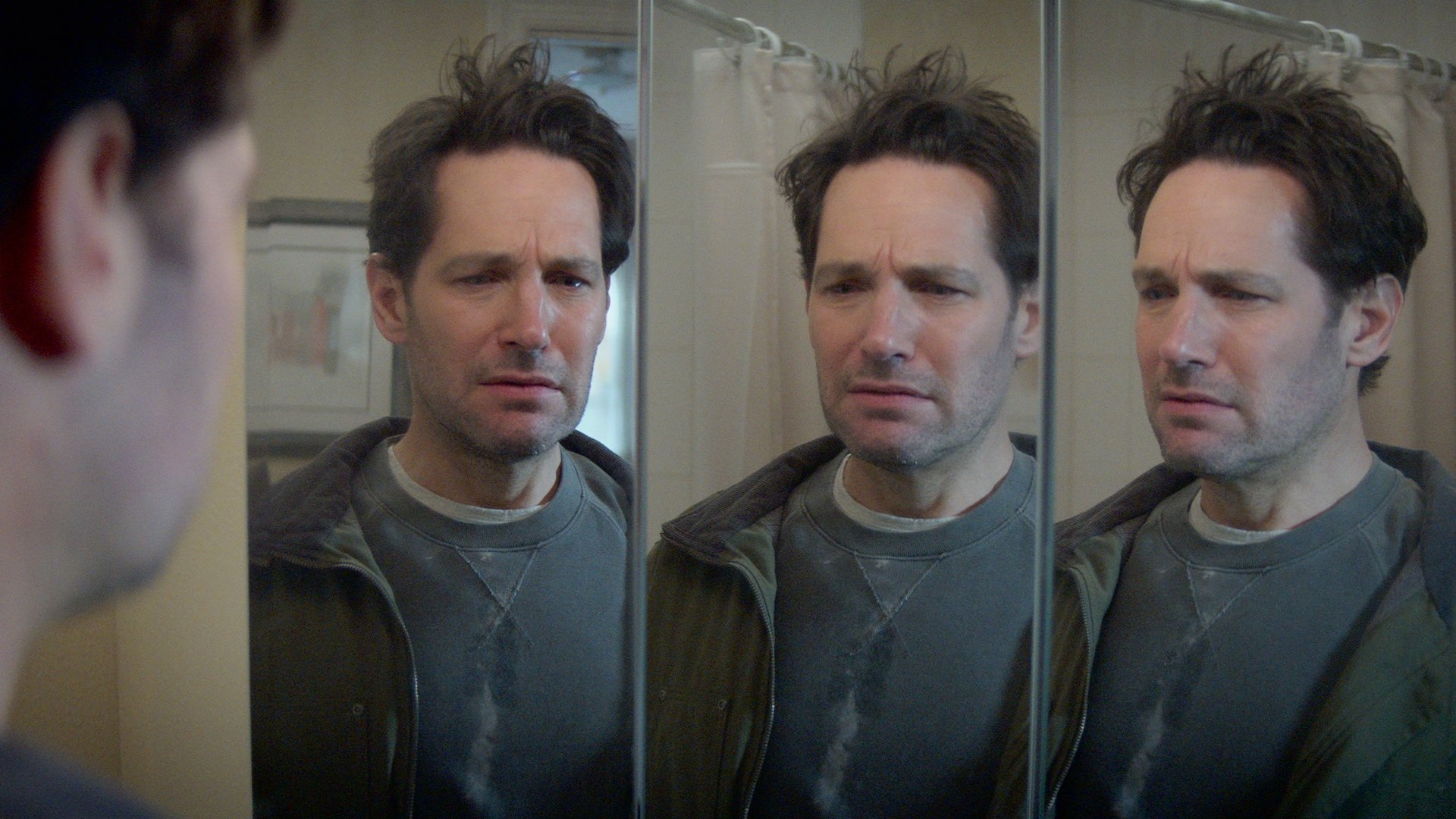
Paul Rudd is just everywhere these days. Image via the Movie Db


0 Comments:
Post a Comment
<< Home